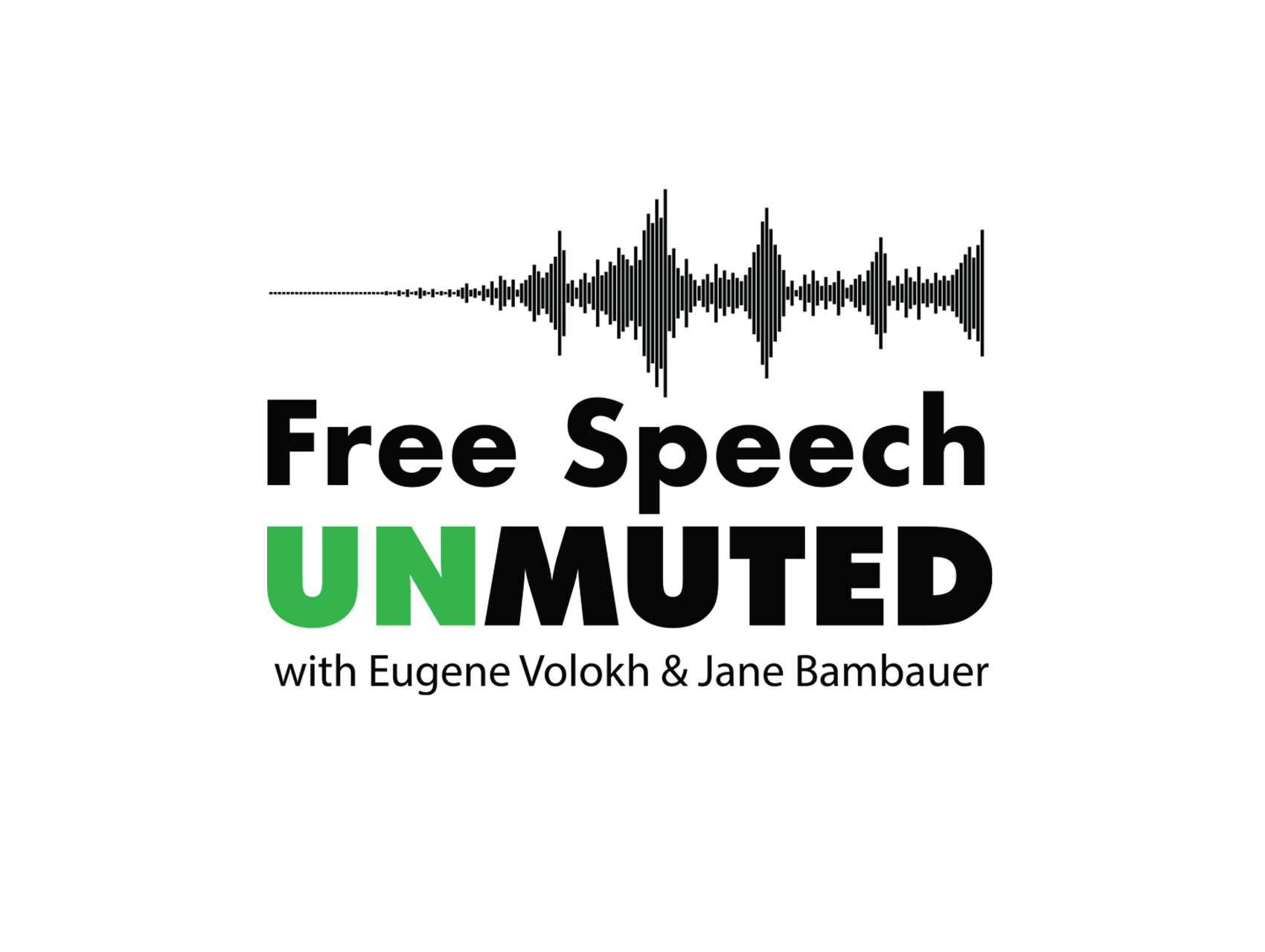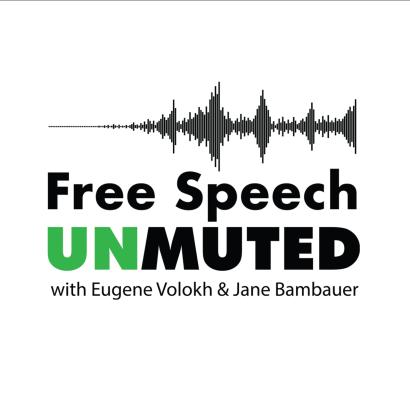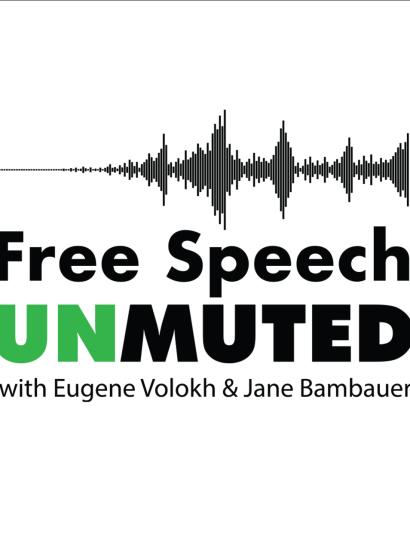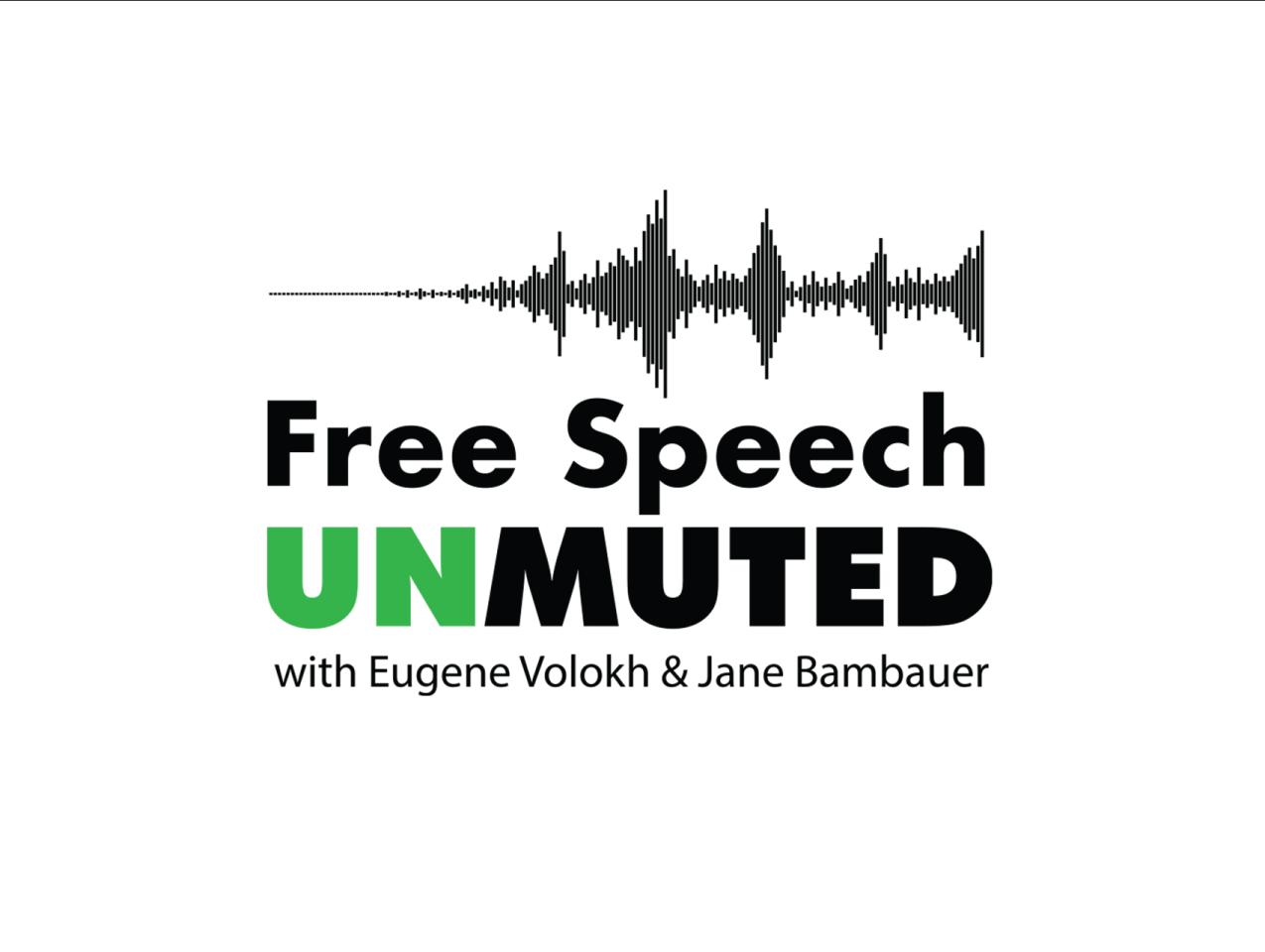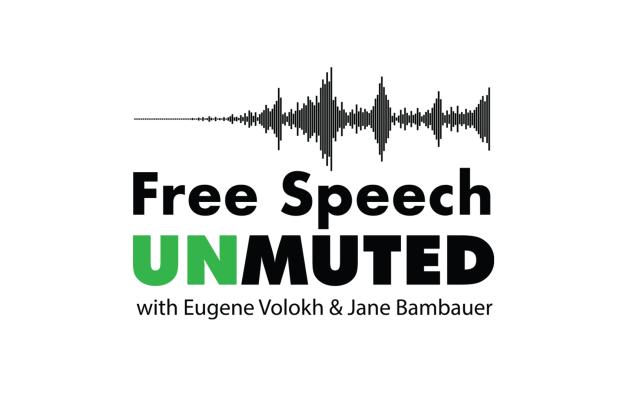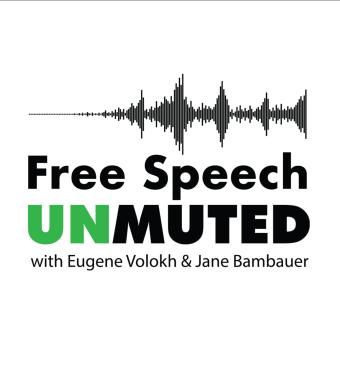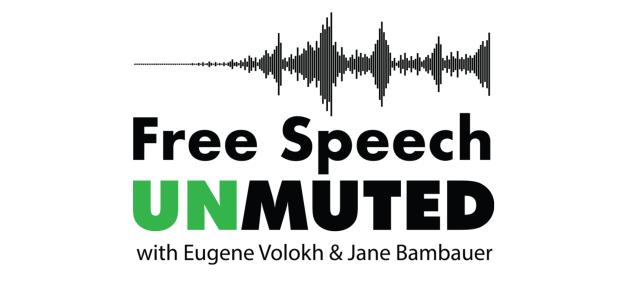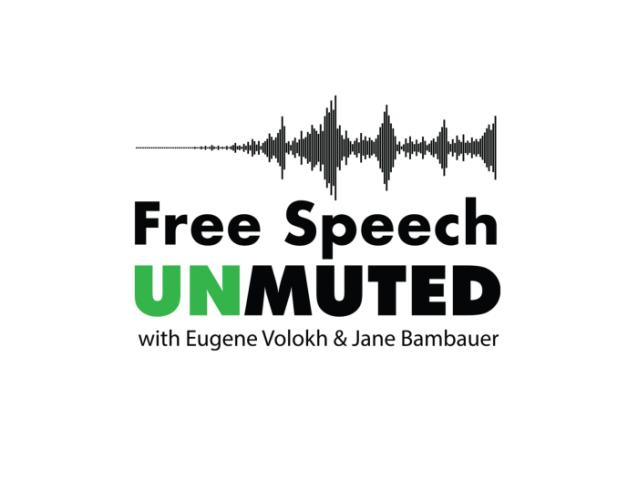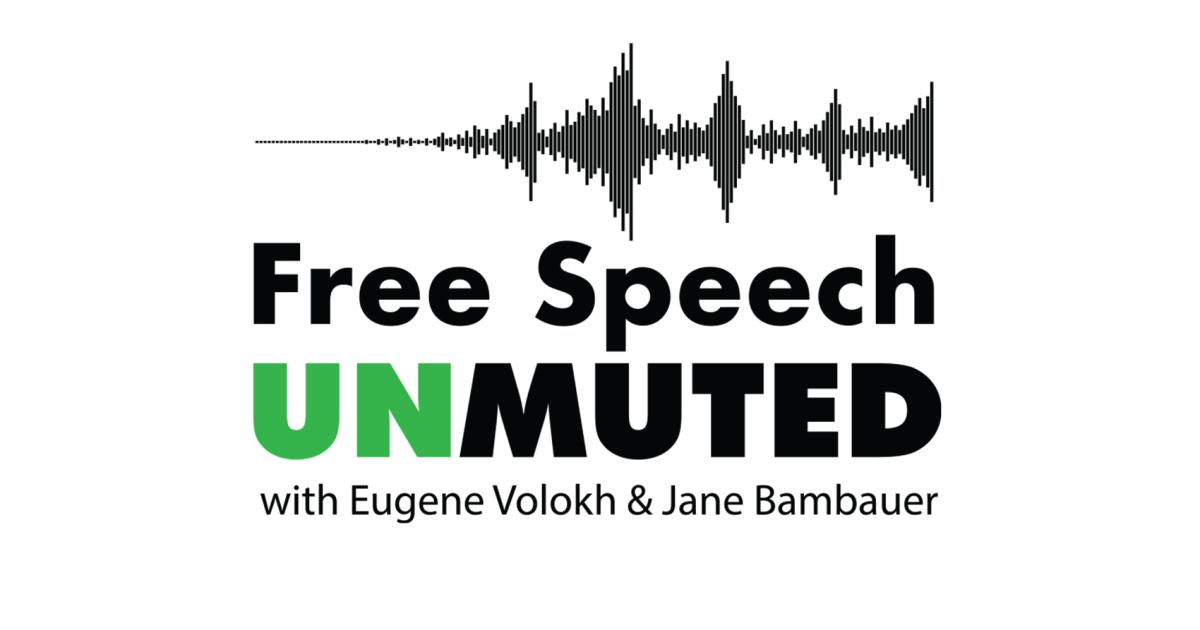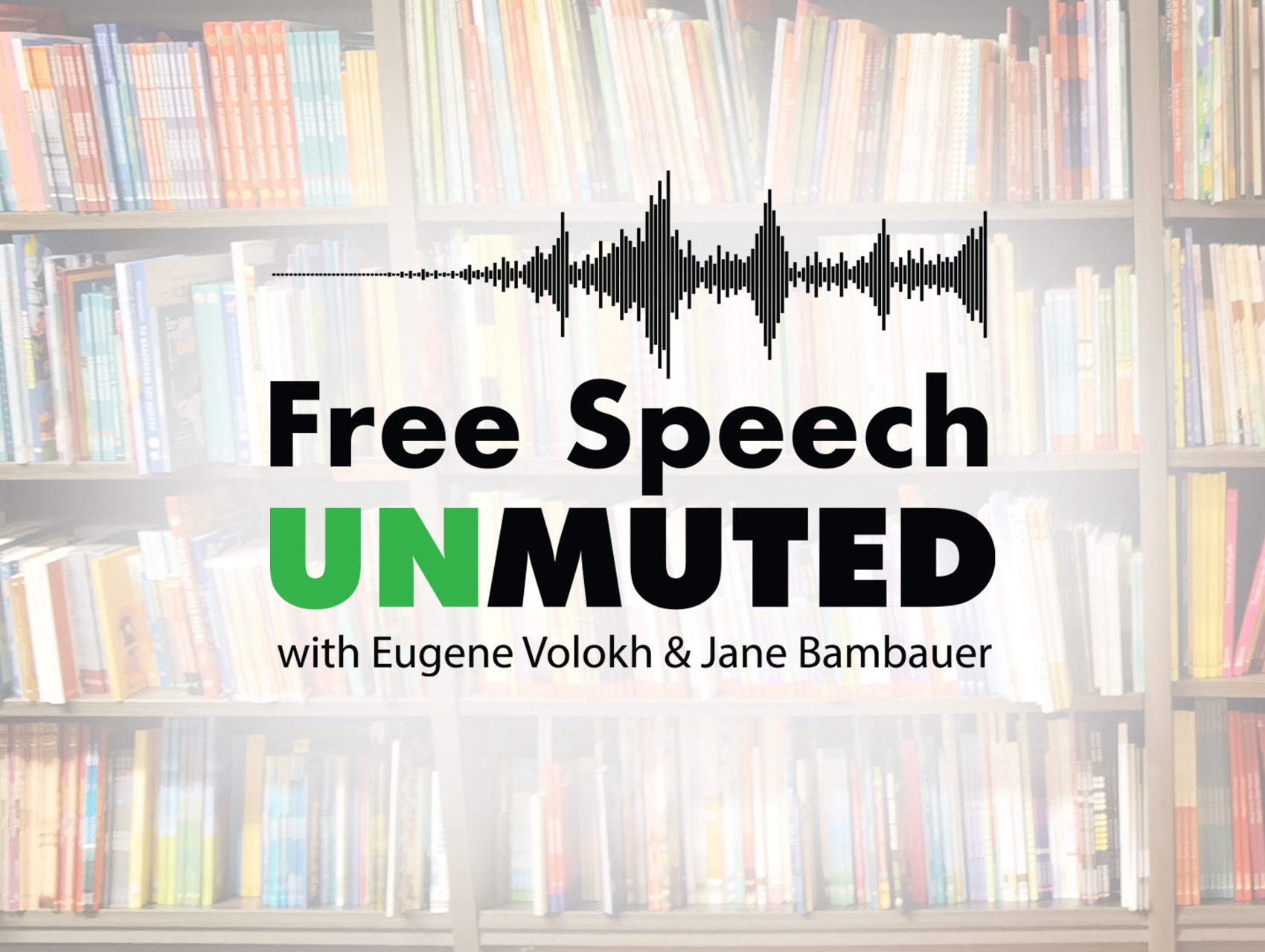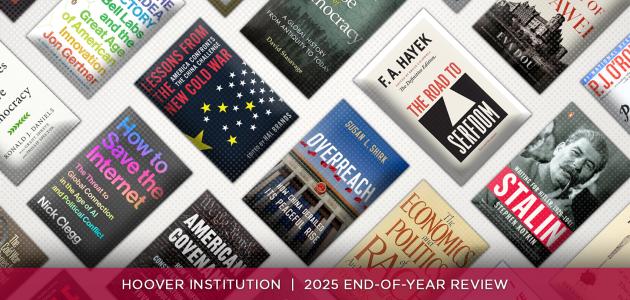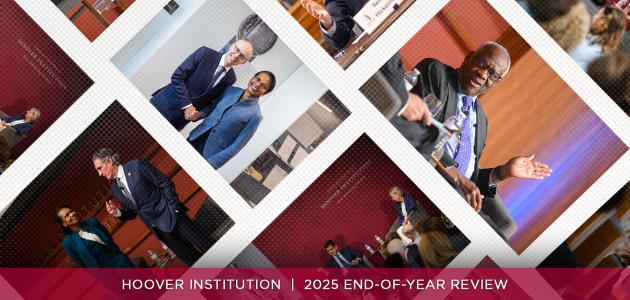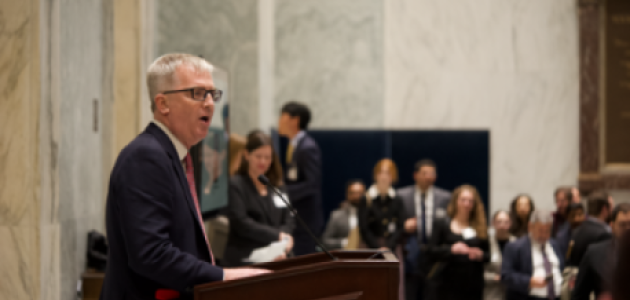In a new Hoover Institution podcast series, Free Speech Unmuted, incoming Hoover senior fellow and legal scholar Eugene Volokh and University of Florida law professor Jane Bambauer analyze and unpack current free-speech controversies concerning judicial application of the First Amendment as it relates to censorship, the press, social media, and the proverbial town square.
Volokh and Bambauer also explain in plain English the often confusing legalese around these issues and describe how the courts and government agencies interpret the Constitution and how new laws being written, passed, and decided will affect Americans’ everyday lives.
“Collectively we have forty-four years of law teaching between us, and too many published words to count, on free speech,” Volokh quipped in the first podcast episode. “Maybe just too many words—we are law professors after all.”
The First Amendment is widely held to be a crucial guardian of basic democratic rights in US society, including freedom of speech, assembly, religion, and the press and the right to petition the government.
In the first episode, “Book Bans—or Are They?” Volokh and Bambauer discuss whether the removal of books from school libraries at the urging of parents who deem them inappropriate violates the First Amendment. They debate what constitutes a valid reason for a school librarian, a school administrator, or a school district to prevent students from reading a book.
In the episode, Volokh and Bambauer provide legal background on the issue through an analysis of Board of Ed. vs. Pico (1982) a US Supreme Court case that resulted in a split 4-4-1 decision.
As Volokh explains, there was a majority agreement on the court that schools can remove books from circulation if they are pervasively vulgar or age inappropriate. However, the court split on the decision on whether it is permissible for schools to remove books from the library based on viewpoint.
Associate Justice William Brennan, in an opinion supported by three other liberal-leaning justices, said that removal of books for ideological reasons is unconstitutional, as it deprives children of access to information. Four conservative justices in a dissenting opinion, led by Chief Justice Warren Burger, took the stance that such removal of books is permissible, because content in a school library is related to school curriculum. There was broad agreement among justices that the curriculum taught in schools is for the political process to decide.
The swing vote was made by Associate Justice Byron White on procedural grounds. He argued that the court should not decide in this stage of the case because there wasn’t sufficient information about why the books were removed. Therefore, Justice White contended, the case should be sent down to a lower court to decide, and perhaps be taken up by the Supreme Court at a later time. The issue remains unresolved by the high court today.
Volokh and Bambauer exchange perspectives about which Supreme Court opinion they believe provided the best reasoning and why the issue is still a complicated one, upon which reasonable people can disagree.
Click here to listen to this and future episodes of Free Speech Unmuted.
Eugene Volokh is a visiting fellow (soon to be senior fellow) at the Hoover Institution. For thirty years, he has been a professor at the University of California–Los Angeles School of Law, where he has taught First Amendment, copyright, criminal, and tort law, and firearms regulation policy. Volokh is the author of the textbooks The First Amendment and Related Statutes (7th ed., 2020) and Academic Legal Writing (5th ed., 2016), as well as more than one hundred law review articles. He is the founder and coauthor of The Volokh Conspiracy, a leading legal blog. Before coming to UCLA, Volokh clerked for Justice Sandra Day O’Connor on the US Supreme Court.
Jane Bambauer is the Brechner Eminent Scholar at the University of Florida's Levin College of Law and the College of Journalism and Communications. She teaches First Amendment, tort, media, and privacy law, and criminal procedure. Bambauer’s research assesses the social costs and benefits of Big Data, AI, and predictive algorithms. Her work analyzes how the regulation of these new information technologies will affect free speech, privacy, law enforcement, health and safety, competitive markets, and government accountability. Bambauer’s research has been featured in more than twenty scholarly publications, including the Stanford Law Review, the Michigan Law Review, the California Law Review, and the Journal of Empirical Legal Studies.







